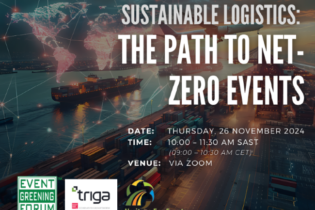It is simply not enough in this day and age to merely exist as a business providing goods or a service to a relevant market. Aside from all the dots and crosses on the respective letters of the alphabet, there needs to be more mindfulness given to not just our carbon footprint but our social impact too.
At this point in time, having some sort of socially focused initiative in the business world should be par for the course within the sustainability discussion. And this particular conversation should not be limited to the events industry alone because sustainability as a whole underpins our very survival.
Being socially responsible goes hand-in-hand with being environmentally responsible. In South Africa, where unemployment is hovering around 27%, far more needs to be done to ensure our citizens are empowered – whether it is through ensuring survival and basic human needs are met or through upskilling, mentorship and, finally, employment so that the individual can become financially independent and is able to provide for themselves without the support of anyone else.
The challenge lies in regulation. As with the use of straws and other plastics, where we seemingly had no previous waste management policies in place to regulate this, it mostly was and currently is being driven only by a few extraordinarily conscientious individuals who have brought to our attention how detrimental this is to our oceans and ecosystems. Someone at a decision- or policy-making level then had to understand this and feel strongly enough about the matter to then lobby for a change in legislation.
Until such a time that there are laws to better govern social responsibility, it will need to be supported at a peer level. In the same way that legislation is currently being enforced to protect the ecosystem in a way that ensures sustainability, there should be laws to govern social responsibility.
Giving back and uplifting our communities should be inherent to us all. In Rwanda, society is thriving, which can partly be attributed to each and every single individual playing a role in ensuring their communities are in good running order and well kempt. Rwanda encourages umuganda, which can be translated as ‘coming together in common purpose to achieve an outcome’. The last Saturday of each month is spent with each citizen giving back to their communities in whatever way is needed.
Within the events industry, there are so many ways in which we can give back. From offering contract employment to local communities during our events to donating leftover food or materials to those in need and upskilling students by exposing them to the events industry – we just need to open our eyes, be more aware of the impact we can make and get creative with the types of opportunities we can provide.







